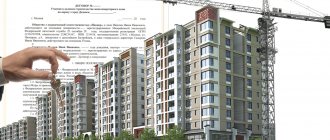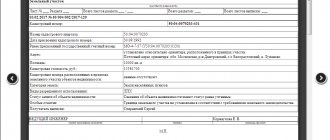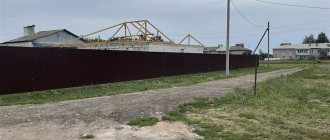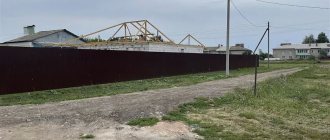The most important thing about how SNT is registered with the tax office in 2021, the documents for registering SNT and the registration deadlines, in accordance with the current legislation of the Russian Federation, will be explained in detail by a lawyer specializing in the registration of non-profit organizations.
A gardening or vegetable gardening partnership is a non-profit organization (NPO) created voluntarily by citizens to organize gardening, vegetable farming and summer cottage farming. Any person who is a tenant, owner of a plot located on the relevant territory, as well as citizens wishing to purchase such plots in accordance with land legislation, or with the subsequent provision of a land plot in state or municipal ownership to the partnership, can become a participant in such an organization.
- Purpose of SNT
- Law on gardening non-profit partnership
- Activities of SNT
- Step-by-step instructions for registering SNT
- SNT registration address
- Documents for registration of SNT
- SNT Charter
- SNT registration deadlines
- Registration fee
What is included in the category of public land?
To satisfy civic needs, legislation allocates special areas for public use. The status of the land allows citizens to be on it legally and allows them to freely use the objects and resources located on it.
Land plots suitable for public free use include the following:
- streets;
- areas of settlements;
- embankments;
- squares and boulevards;
- public beaches, water features and parks;
- driveways and roads;
- public parking, bus stops, etc.
Citizens, in accordance with land legislation and the legal regime, have the opportunity to use these territories and the natural and technical objects located on them.
Public lands are prohibited from being transferred to individual ownership. Some objects can be re-registered for temporary use (rented out), taking into account that the new owner will not restrict the right of public use of the territory (its original purpose).
Obtaining a cadastral passport
It is provided in the form of a map containing information about the boundaries of the land plot. The document contains graphic and descriptive sections. It is necessary to confirm the boundaries of the site. Until 2008, a cadastral plan was issued by the Cadastral Chamber. Today you can order the issuance of a cadastral passport at the local branch of Rosreestr.
If there is no cadastral passport, an extract is issued stating that the plot does not have a cadastral number and is not registered with the state. This means that documents on the site were not previously provided and they are not in the state real estate register.
In this case, the boundaries of the site must be surveyed with the involvement of a cadastral engineer. He needs to provide the available documents. If necessary, he will request additional information from government agencies. You will have to pay for the service yourself. In addition, it is necessary to obtain signatures from the owners of adjacent plots that they agree with the definition of the boundaries at their location. If there is a claim, land surveying will have to be postponed until the trial.
If neighbors refuse to sign and do not make contact, without showing disagreement, it is enough to notify them in writing about the planned land survey. In this case, notifications about sending notices are attached to the land surveying act.
Who owns them in gardening partnerships (SNT)?
SNT is a horticultural non-profit partnership that manages agricultural land. Real estate in SNT is distributed in accordance with Article 28 of the Law on SNT:
- all lands belong to one legal entity, the organizer of SNT;
- common property of the members of the association (the land belongs to everyone, but is distributed among plots).
Registration of property rights is allowed for these areas; renting is prohibited.
Members of SNT can choose the right of privatization belongs to members of SNT . If registration of common ownership is used, then joint and shared ownership is allowed.
Ownership rights are formalized through a general application with the consent of all members of the partnership. This is confirmed by the minutes of the meeting of members of the partnership. But there are public areas that cannot be privatized. If such areas are allocated to SNT on the basis of perpetual use rights, then it does not terminate its validity without the desire of SNT.
Legislation
Chapter 30 of the Civil Code describes the regulations for carrying out purchase and sale transactions, the rules for drawing up an agreement and the documents required for this.
The nuances of buying and selling real estate are set out in paragraph 7 of this chapter.
Particular attention should be paid to Article 551 of the Civil Code, which establishes
mandatory state registration of such transactions, as well as Article 552 of the Civil Code, which establishes the transfer of the right to own land upon the sale of a building located on it.
Article 556 of the Civil Code, which establishes the obligation to draw up a transfer deed, is also important.
The provisions of the Civil Code on transactions (Chapter 9) and contracts (Chapter 27-29) are also relevant.
Article 37 of the Land Code imposes additional requirements for the sale of land.
In particular, this regulatory act prohibits the sale of plots that have not undergone cadastral registration, as well as the sale of plots under conditions limiting further resale, rental and other forms of transactions.
Transfer options
It is impossible to obtain ownership of public lands . But there are two options for sharing with the public:
- Renting.
- Free unlimited use.
The Civil and Land Code prohibits registering as private property a land plot that is for general use and is the property of the state, regardless of how the registration occurs - by purchase or through the privatization procedure.
Particular attention should be paid to objects located on these lands. If there is a capital structure registered as real estate with mandatory registration of ownership, then this plot can be recognized through the court as owned. In the case of property claims made against a street plot of land, this right will not work.
A common way to use public lands for your own needs is to lease .
It is issued by the owners of capital buildings located on common areas. When drawing up a lease agreement, the owner of a building located on the site has the right of preference when concluding a lease agreement. There is no subsequent right of redemption when leasing public land. Indicating the possibility of redemption in the content of the contract is considered illegal. Lease of public land is common in the field of legal relations, where one of the parties entering into an agreement is a legal entity.
The property of the territory is assigned on a permanent basis to the state and is expressed in the person of its subjects or municipalities. Citizen-users can legally dispose of buildings and resources located on state territory , and also claim the right to assign the right to use the land to the new owner of the building.
Registration procedure
To register a garden plot as your property, two methods are used:
- Free privatization;
- Allocation of a share from joint ownership in SNT.
If the plot is part of collective property, the right can be obtained by purchasing a share or share. The procedure is carried out in the following way:
- First, you need to publish an announcement in the local media about the planned allocation of a share of land;
- If the participants in common ownership do not submit an objection within 1 month, boundary work is carried out to determine the boundaries of the site;
- The cadastral engineer will determine the boundaries and check that they do not overlap neighboring areas;
- Based on the results of the work, a boundary plan and cadastral passport are drawn up;
- Next, you should contact Rosreestr with documents to register the property and register the plot as a separate plot for cadastral registration.
If the SNT is small, it is not necessary to send an advertisement to the media. It is sufficient to send written notice to each participant.
How and where to apply?
An application for the provision of public land is submitted to the authorized administrative authorities (in accordance with Article 39.2 of the Land Code of the Russian Federation).
The application is submitted in several ways:
- personal visit;
- transfer of a package of documents through the MFC;
- delivery of documents by registered mail.
In a situation with public land, it is preferable to visit the administration yourself. Civil servants will advise you on the necessary documents and calculate the chances of obtaining a positive result.
To complete a preferential transaction for the provision of land, the following documents will be required:
- the applicant's identity card;
- a document that substantiates the applicant’s membership in a preferential category of citizens;
- documents for construction (if there is an object on the site);
- boundary documents, if the applicant uses them;
- cadastral passport or land extract.
A copy is made for each document. More information about the list of required documents for each category of citizen-applicants can be found in the reception administration or on the official website of the multifunctional center.
The application does not require notarization . A notary will be required to issue a power of attorney if the applicant will provide documents through a proxy. The application procedure for citizens is not subject to state fees and is free.
Submitting a rental application
The user has the right to apply for the lease of a state plot. In response, the administration must announce an auction to provide the site for rent. If no additional applicants are found within a month, the auction is closed and an agreement is drawn up with the first applicant.
The rental agreement is concluded with the administration within 14 working days. The period for consideration of an application for the gratuitous provision of allotment to preferential categories of citizens is up to 30 working days.
Obtaining a title document
The stage of collecting documents requires special attention. If at least one of them is missing, property registration may be refused. The most important of these is the title document. It confirms the fact that the citizen has received land. In the case of designing a garden plot, the following can be used:
- Certificate of right to lifelong inheritable ownership or permanent perpetual use. The document is issued for a plot allocated by the municipality within its territory.
- An act granting land for lifelong inheritable possession or permanent perpetual use. The document is issued by the local government authority.
- An old-style certificate of ownership of a plot, which takes the form of a separate document indicating the owner’s details, cadastral number and full address of the plot.
- An extract from the household register indicating the rights to the land plot. It is issued if the land is provided to a citizen for personal farming.
The title document must be drawn up first. It acts as the main confirmation of ownership and the basis for its emergence. In the event of a legal dispute, it is difficult to prove your position without it.
If the title document was previously issued and lost, it must be restored. To do this, you should contact Rosreestr or the local administration. The owner's passport and other documents confirming ownership of the plot are provided.
If the document is nowhere to be found, you will have to apply to the district court at the location of the garden plot to recognize ownership. It is important to correctly draw up a statement of claim, indicating detailed information about the date and features of obtaining the site. At the end of the appeal, a request is indicated to provide ownership of the plot.
Supporting documents and evidence are attached to the claim. It is better to attach as large a list as possible. These could be receipts for payment of membership fees and utilities, a garden book, payment documents or a contract for repair work or construction of buildings, if any. In case of a positive outcome, a court decision is issued, which is submitted to Rosreestr or MFC as a title document.
Taxation procedure
Public land owned by the state is subject to a special form of taxation:
- If the plot is leased, while maintaining the right of general use, then all users pay the tax. If this right does not exist, then the payment is made by the tenant.
- If the site is not leased out or for indefinite use, then the land tax is replaced by a tax according to the intended purpose and purpose of use for all potential users. For example, a roadway, taxpayers pay a transport tax for the use of the road.
- Land owned by partnerships is subject to tax, which is paid by all share owners jointly or in specified parts.
- The taxation regime is considered special - this is determined by the status of the territory, its intended purpose and possible options for use.
It is precisely because of the social status that it is impossible to use the classical form of taxation for the sphere of fiscal legal relations for such lands, since the territory is permanently owned by the state.
The tax amount is divided proportionally among all citizen users.
Should we register public land in SNT or not?
As the classic almost used to say: “There is no gardener who does not dream of becoming a chairman. And there is no chairman who does not dream of becoming a gardener again...” in order to throw off a huge pile of problems that sooner or later arise for any leader of the nobility. “Live and don’t worry! “Collect membership fees, meaningfully push a wheelbarrow with humus in front of your forced brothers in hoe and pruning shears!” - you say. But no! The life of our Moscow region chairman is not so serene. Many heavy (and not so heavy) thoughts about collective well-being do not allow him to take a peaceful nap during the hours of daytime bliss, looking at the ripening “cider”, still materialized in the meaningless intermediate format of an apple! Either electricity tariffs will be raised, then the road will again be erased to the state of the original direction, so angrily hated by all gardeners, then aphids, like the Mongol yoke, will attack the unmowed abandoned neighbor’s plot and devour, without choking, the entire crop of cucumbers in the neighborhood. In general, the life of the chairman of a garden cooperative is not easy. And then there are these – public lands of the gardening partnership. And not just - they exist, but the chairman is constantly reminded of them either by the district administration, or by the gardeners themselves, who refuse to make targeted contributions for their maintenance, or by annoying flies - cadastral engineers with their proposals for the registration of such lands. And our chairman is tormented: on the one hand, they have stood for 30 years unformed, and will remain standing for the same amount of time, on the other hand, our restless gardener feels some kind of catch in constant reminders of them from all sides, he feels with all his weather-sensitive and trained body hidden need for their design. So is it necessary to register the public lands of a gardening partnership or not? Let's figure it out together. So, first of all, what do we have? And we have the territory of a gardening partnership, let’s say, with an area of 10 hectares, provided (again, let’s say) by SNT “Gardener” in 19... shaggy year with the right of permanent, unlimited use for the organization and development of the territory of SNT. And there are 100 members in this partnership, each of whom was entitled to a plot of 8 acres. And everyone is alive and well, growing carrots and potatoes and drinking tea on the verandas of their garden houses, albeit a little damp and cold, but immensely dear to their hearts. Thus, over many years, from their 10 hectares of the original territory, 2 hectares remained in the general use of SNT - under the roads, the fire-fighting pond (even if it were wrong - there would be only mosquitoes from it) and under the board building, where the remains of a motor pump with a fire hose gnawed by mice are stored . And everything would have been fine and quite logical if not for a number of circumstances. Namely…
"Guys! I’m one of my own, a gardener... Oh, he also expresses himself in our own way. »
No body - no business! This is exactly how representatives of one of the most joyless professions in our homeland like to joke... However, even here our poor chairman is again not amused! The validity of collecting (or collecting) membership, target and/or other fees for the maintenance of SNT’s public property can be questioned (and quite legitimately, it must be said) both by individual members of the gardening partnership and by all of them at once - under great doubt. And here's the thing. According to the law, any property begins to exist exclusively from the moment the right to it is registered. Simply put, if the public lands of the SNT are not registered (and as a result, their unique characteristics are not determined - area, configuration, etc.) - such lands as property do not exist, and collecting money for their maintenance can be classified as fraud on the part of the chairman and the board of SNT, loyal to him. And this is already a personal responsibility and with very unpleasant consequences...
“This is SNT property! No - ours!
“You are under arrest! - Do you have a pistol? “Then they’re detained...” or Without a land surveying project, nowhere.
In general, the list of torments and torments of an ordinary gardener, who, out of the kindness of his heart, has shouldered the chains of chairmanship, is endless. And it can also be described for an infinitely long time. But, as with everything, there are positive sides. This is why we believe it is necessary to register public lands: 1. Avoid fines; 2. Avoid claims of unjust enrichment or fraud; 3. Create a correct and transparent principle for collecting targeted and regular contributions for all gardeners; 4. Protect your property and territorial rights; 5. Obtain (from January 1, 2021) the opportunity to access government subsidies for the development of SNT infrastructure (road construction, lighting organization, supply of resources, etc.)
And, of course, traditionally we share with you simple and understandable infographics.
Seizure and liability for violation of rights
Land squatting is considered a common land violation. The violator is brought to administrative responsibility under Article 7.1 of the Code of Administrative Offenses of the Russian Federation. The code defines squatting as follows: unauthorized occupation of state territory and its further exploitation without the appropriate documentary permits.
The use of a plot without supporting documents is also considered self-occupation of an allotment.
A penalty for this offense under Article 7.1 of the Code of Administrative Offenses is imposed in the following form:
- for an individual a fine from 500 rubles to 1,000;
- for an official a fine in the amount of 1,000 to 2,000 rubles;
- for a legal entity a fine from 2,000 to 20,000 rubles.
If the invader has built an unauthorized structure on the land, at his own expense the court will force him to destroy the structure and restore the original appearance of the site.
On our website you can also find out what types of use of land plots are available that are not general purpose lands, what are the rules and conditions for the provision of such plots, what is the procedure for registering such lands, and also what may cause the loss of the right to use land, such as It is correct to file a claim to remove obstacles to the use of land plots, and what to do if the administration refuses to provide a land plot.
Public land is state-owned or owned by specialized partnerships. For personal needs, such territory can be rented or taken for free indefinite use, but with the preservation of the right of general provision. The applicant for land submits a corresponding application to the administration and provides a package of documents.
What will change from March 1, 2022?
From March 1, 2022, the acquisition of such plots will be possible only after bidding. It will be possible to become a landowner by participating in auctions held by settlement administrations. Information about all plots of municipal or state ownership that are expected to be offered at auctions is subject to mandatory posting on the website www.torgi.gov.ru.
Question answer
Who can go to the SNT meeting instead of the owner of the site?









